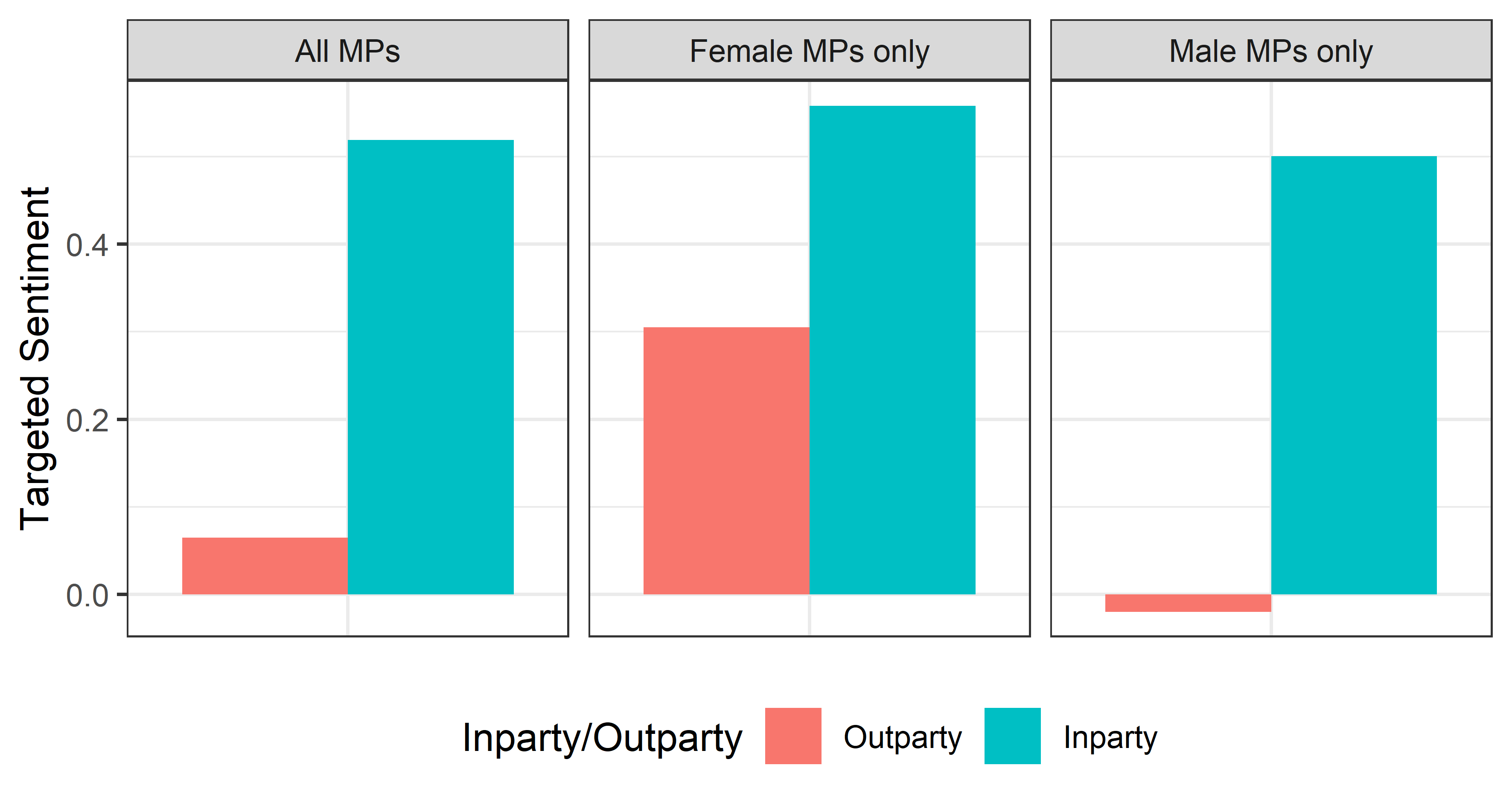Publications
Forthcoming, The Journal of Politics
With Hanna Bäck and Andrej Kokkonen

Affective polarization is increasing in many parts of the world, and previous research has shown that elite communication may have important consequences for intergroup conflict at the mass level. It has been suggested that women and men politicians engaging in different communication styles may influence affective polarization in the electorate. However, there is a lack of research analyzing gendered patterns of polarizing communication among political elites on social media. We focus on filling this gap, analyzing how politicians communicate on social media in 24 western countries. Specifically, we use machine learning to measure the tone of over 200,000 twitter interactions and find that male politicians are more likely to attack political opponents representing 'outgroups' and that male representatives receive more outgroup negativity. We propose that a 'male hostility spiral' explains this pattern, where (male) politicians attack each other online for retribution, creating a negative spiral in which hostility sparks hostility.
Digital Parliamentary Data in Action (DiPaDA 2024) – Introduction. DHNB (2024), vol.7, no. 1, pp. 1-6. With Daniel Brodén, Mats Fridlund and Matti La Mela.

